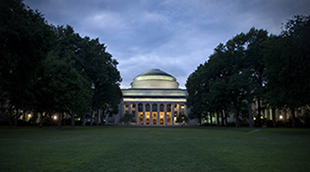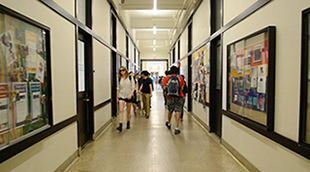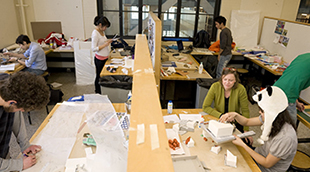Stu Schmill is the Dean of Admissions and Student Financial Services at Massachusetts Institute of Technology. Here he tells us a bit more about the prestigious institution and why it is an excellent choice for international students.
About Massachusetts Institute of Technology
'We believe the best education occurs when students are self-motivated and engaged participants in a dynamic community of learners. We combine rigorous academics with a learning-by-doing approach. An MIT education has always been based on certain principles:

'MIT housing is guaranteed for all four years and all first-year students live in on-campus residence halls. MIT’s signature Undergraduate Research Opportunities Program (UROP) supports thousands of projects each year with 93 per cent of MIT graduating seniors conducting research, for pay or for credit, during their undergraduate years.'
'MIT is organised into several schools of study:
- School of Architecture and Planning
- School of Engineering
- School of Humanities, Arts, and Social Sciences
- MIT Sloan School of Management
- School of Science'
'We also have the Schwarzman College of Computing that coordinates computing education, research and infrastructure across the schools.'
'Each of these schools offers degrees in their courses of study, as well as minors and/or concentrations.'
International students

'If you attended high school outside of the United States, your grades and subjects of study might have been very different from those of most American students. However, this will not negatively impact your application to MIT. MIT admissions counselors are trained to understand the educational system in your country. We do not try to convert your grades to the American system, or to find other sorts of equivalence. You will not be competing against your classmates or students in other parts of the world; we do not have caps or quotas for countries. We consider each student as an individual as they proceed through our process.'
'Admission for international students is need-blind, meaning that your ability to pay will have no bearing on your admission chances. All financial aid is awarded solely on the basis of financial need, and we meet the full financial need of every student. MIT is proud to be one of only a small number of universities in the United States that has these policies for all students, US and international.'
Advice to Cambridge International students
'We are fortunate to have quite a robust international applicant pool at MIT, and we do see a fair number of students with Cambridge International qualifications applying from all over the world. Students who have excelled in a rigorous curriculum, like the one Cambridge International offers, can give us confidence that they have a strong educational and personal foundation to be critical thinkers and successful MIT students.'
'First and foremost, we believe students should take the courses that are best suited for them in terms of their interests and aptitudes. But in terms of applying to MIT, most students we admit will typically have maths and physics, along with one or two of the following subjects: biology, chemistry, economics and/or further maths. Having a strong foundation in many of these subjects is important for success in MIT’s core curriculum, which you can read more about on the MIT website.'

'We think the Cambridge Global Perspectives & Research (GPR) course is a great way for students to explore and develop important critical thinking skills for university, and in fact, students who do well in the course can receive MIT elective credit. We sometimes see applicants who are taking Cambridge GPR as a 4th A Level, and will consider those taking it as a 3rd A Level as well, but it is not a requirement or an expectation. But again, our best advice is to take appropriately challenging courses in the subjects that are of most interest to you.'
Why should Cambridge International students choose MIT?
'We search the world for students who we think will be a good fit at MIT, and try to put together the best group of students to go through MIT together.'
'In any given year there are ~4500 undergraduates at MIT. They hail from all 50 US states and more than 100 countries from all over the world. The undergraduate population is close to 50/50 between men and women, and among them there is no majority race or ethnicity. Students at MIT come from a wide range of economic and educational backgrounds, and it has the highest economic mobility index of its peer schools.'
'Long a home for those who felt like they had no other, MIT has one of the oldest LGBTQ+ student groups in the country, as well as several ethnic or cultural affinity houses, and an affirming home for international, undocumented and trans students.'

